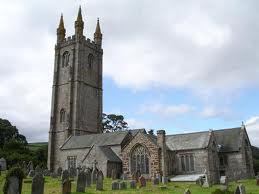From the Letters of Frances, Lady Shelley
August 12. (Devon 1852) — “We felt a tremendous earthquake shock at Beer Ferrers at 7:30 this morning. It was not felt at Plymouth, but, so far as we can ascertain, it was first felt at Beer Town, where all the crockery ware on the shelves rattled for some seconds. We heard a great noise, like the blowing up of a powder magazine, which we thought must have occurred at Plymouth. The house rocked to its foundations. I happened to be writing at the time, and the pen was dashed out of my hand. At Beer Alston, due north from here, the shock was greater. Tiles were thrown from the roof, people rushed into the street, and in the new mine close to the Tamar, those who were working in the upper gallery rushed below, believing that the earth had fallen in upon the men working there. At Tavistock a chemist told me that all his bottles rattled and shook so much that he expected them to fall to the floor. On the Moor many of the great stones were detached from the Tor, and at Two Bridges the landlord told us that while he was in his stable the noise and shaking was so great that he ran out thinking that the building would fall about his ears. On the first floor of his house the children screamed, and his wife expected the floor to give way. A wall had been thrown down at Widdicombe, on the Exeter road. We have traced the shock in a direction from east to west, increasing in intensity as it proceeded.
 |
| St. Pancras Church, Widecombe |
“The last recorded convulsion of this kind was in October 1752, just a hundred years ago. During the evening service in Widdicombe church, a ball of fire burst through one of the windows, and passed down the nave. Large stones, which were detached from the tower of the church, broke through the roof. The clergyman, the Rev. Mr. Lynn, and his clerk remained in their places, and a huge beam from the roof actually fell between them. The clergyman continued to pray aloud, in the presence only of the dead and the wounded. Four persons were killed, and sixty-two persons seriously injured. The most harrowing tales respecting this shock are still told by the peasantry of Dartmoor. A hundred years ago the shock was heralded by a violent storm of thunder and lightning. On the present occasion there was no storm. The sky was overcast, the air was heavily charged, and had been so for some days.”
What an excellent first hand account of what I am sure was a singular event in the life of the writer. I cannot begin to imagine what it must have been like for a society with very little acquaintance with earthquakes.